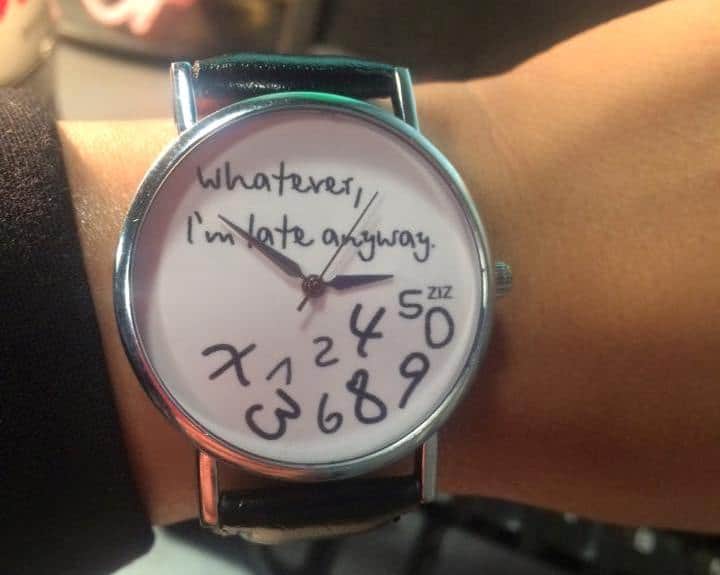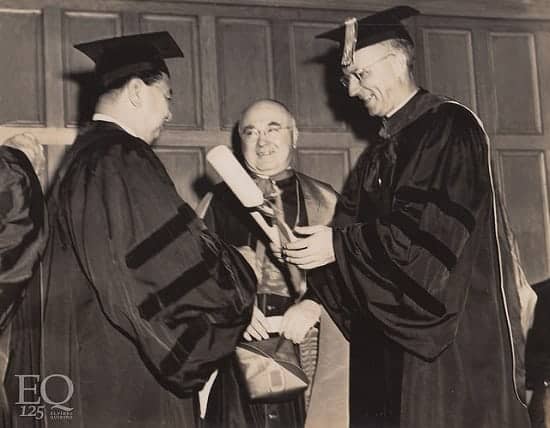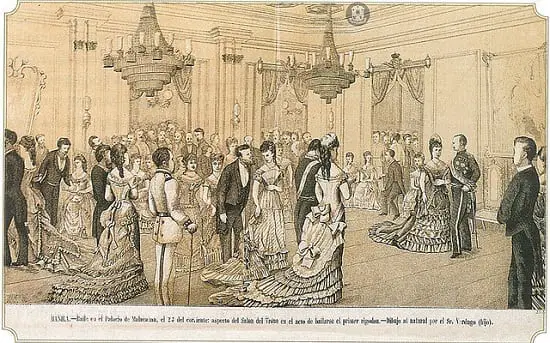The Intriguing History of ‘Filipino Time’

The enactment of Republic Act No. 10535 a few years ago only indicates that tardiness has grown into a national pet peeve. Signed by President Aquino in 2013, the said law aims to synchronize all clocks in the country, particularly in all government offices as well as private television and radio stations.
RA 10535 was put into effect not only to require everyone to follow the “Philippine Standard Time” (or “Juan Time” as coined by DOST), but also to validate the notion that we’re a country of latecomers who love making excuses. These include among others Manila’s hellish traffic and the classic “my clock isn’t working” alibi.
That a law had to be passed just to put these excuses to rest only confirms “Filipino time” isn’t just a wretched habit but a major character flaw deeply ingrained in our culture. Or is it?
Also Read: 12 Annoying Attitudes of Filipinos We Need To Get Rid Of
A Presidential affair
Turns out, your perpetually tardy co-worker isn’t the only Filipino who constantly gets on people’s nerves. In fact, history is rich in anecdotes proving that even our past leaders also suffered from this social disease.
In 1949, President Elpidio Quirino was in New York to receive an honorary doctorate from the Fordham University. But according to a journal article by Jesuit historian Miguel Bernad, excitement suddenly turned into disappointment when the Guest of Honor failed to show up on time.

The ceremony was scheduled at two o’clock in the afternoon, but the Filipino president only arrived at four o’clock, much to the dismay of the audience who nearly abandoned the event.
Quirino reportedly blamed the traffic, but others knew better: His police escort was enough to get him through it, and he was probably using it as an excuse to cover up his tardiness.
The Marcoses were even more notorious for not valuing other people’s time. It is said that President Marcos once almost ruined the jovial mood in a town fiesta in Tacloban when he came an hour late for the religious procession.
His better half, Imelda, on the other hand, stole the spotlight when she came late for the recital of famous American pianist Van Clyburn, delaying the event for an astounding three hours.
From a status symbol to a national embarrassment
Various theories have sprouted over the years to explain the origin of “Filipino Time.” Some meteorologists believe our tropical climate could be the culprit. After all, we don’t have a variety of seasons to deal with so we’re not as time- or season-conscious as our Western counterparts.
The humidity and heat may have also caused some of us to be lethargic, leading to procrastination in the form of mañana habit or “Filipino time.”
Also Read: 10 Weird Phenomena That Perfectly Sum Up Today’s Filipino Culture
Our colonial history suggests otherwise. Prof. Augusto De Viana of UST Department of History traces its roots to the Spanish colonial period when high-ranking Spanish officials actually took pride in arriving late during important occasions. For them, “fashionable tardiness” validated their worth, a “status symbol” that made the latecomer the center of attention.
No wonder Jose Rizal mentioned this type of incident in his two groundbreaking novels. In Noli Me Tangere, he described one Spaniard showing this kind of behavior:
“Linares had not yet arrived, for being an important person, he must come much later than the others. There are people who are flattered that for each hour of delay because they have not yet arrived, they become more significant”
The El Filibusterismo also details how the tardiness of one governor general delayed the showing of the play Bells of Cornville for a few minutes. As Rizal observed:
“Indeed, there are persons who come to the theaters like asses in a race: he who arrives last is the winner. Sane men we know would rather mount the scaffold first than turn up at the theater before the start of the first act”

For centuries, the Indios had to endure discrimination and the colonizers’ penchant for arriving late. But what started as a negative trait of the Spanish elite was later adopted by Filipinos by the time the Americans took over the Philippines.
It was the same upper-class Filipinos whom the Americans had to deal with to push through with their agenda. These rich Filipinos, who showed the same annoying behavior as their former colonizers, became a burden to the Americans.
Also Read: 8 Dark Chapters of Filipino-American History We Rarely Talk About
They also observed that rural Filipinos who grew up relying on the sunrise and sunset showed the same attitude. Hence, following their successful campaign to “civilize” the head-hunting, dog-eating Filipinos through “benevolent assimilation,” the Americans coined the phrase “Filipino Time.”
The term was not just an expression of the Americans’ disgust over our ancestors’ habit of not meeting schedules, but also an invention that supposedly put the colonizers in a good light. The fact that the Philippine time (eastern zone) is 24 hours ahead of the U.S. time (western zone) contradicts America’s overall image as the superior, all-knowing, all-powerful colonizer.
Hence, “Filipino time” was born and so were the evils and the negative connotation that has long tarnished our image as hard-working citizens of the world.
Turning “Filipino Time” to “Filipino On Time.”
Just because the colonizers have brought us the idea of “fashionable tardiness” doesn’t mean we should remain chained to our past. And the fact that “Filipino time” isn’t uniquely Filipino (there are also Fijian time, Caribbean time, and Italian time, just to name a few) should never be an excuse for us to be lenient in our ways.

Change–and by change I mean serious character overhaul–is part and parcel of succeeding in any endeavor. The Philippines will remain lagging behind in an economic standpoint if we as individuals fail to come to work on time or ruin a foreigner’s perception of us by explaining that “Filipino time” is inherently part of our culture.
Time is more valuable than money. It’s something that we want the most, but we use the worst. Let’s all work hard to ditch the idea of “Filipino time” and say hello to the new catchphrase that will hopefully define the generations to come: “Filipino On Time.”
References
Bernad, M. (2002). Filipino Time. Budhi: A Journal Of Ideas And Culture, 5(3).
EDITORIAL – ‘Filipino time’. (2013). philSTAR.com. Retrieved 24 August 2016, from http://goo.gl/bNlNBJ
Marcos, J. & Obice, J. (2014). Epektibo ba ang ‘Filipino Time’?. The Varsitarian. Retrieved 24 August 2016, from http://goo.gl/sgdY7l
Royeca, J. (2010). The Real ‘Filipino Time’. Philippine Studies. Retrieved 24 August 2016, from http://goo.gl/vzq4SU
Sison, S. (2015). Can we get rid of ‘Filipino time’?. Rappler. Retrieved 24 August 2016, from http://goo.gl/sTkfGs
With PST, “Filipino time” is now “On Time.”. (2011). Department of Science and Technology Official Website. Retrieved 24 August 2016, from http://goo.gl/Th6wiF
FilipiKnow
FilipiKnow strives to ensure each article published on this website is as accurate and reliable as possible. We invite you, our reader, to take part in our mission to provide free, high-quality information for every Juan. If you think this article needs improvement, or if you have suggestions on how we can better achieve our goals, let us know by sending a message to admin at filipiknow dot net
Copyright Notice
All materials contained on this site are protected by the Republic of the Philippines copyright law and may not be reproduced, distributed, transmitted, displayed, published, or broadcast without the prior written permission of filipiknow.net or in the case of third party materials, the owner of that content. You may not alter or remove any trademark, copyright, or other notice from copies of the content. Be warned that we have already reported and helped terminate several websites and YouTube channels for blatantly stealing our content. If you wish to use filipiknow.net content for commercial purposes, such as for content syndication, etc., please contact us at legal(at)filipiknow(dot)net